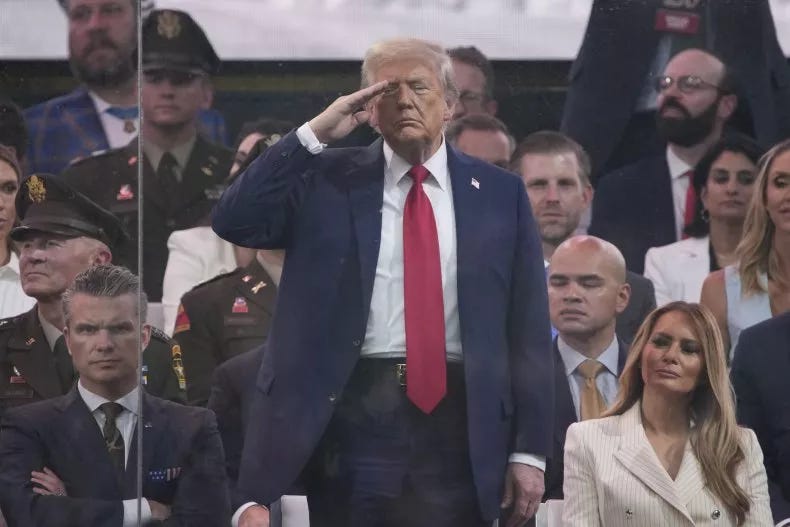Bonus 158: The Supreme Court and the Long-Term Drift of the War Powers
The common narrative is that Congress has ceded its constitutional control over war powers to the President. But the Supreme Court also bears some responsibility for that deeply troubling realignment.
Welcome back to the weekly bonus content for “One First.” Although Monday’s regular newsletter will remain free for as long as I’m able to do this, I put much of the weekly bonus issue behind a paywall as an added incentive for those who are willing and able to support the work that goes into putting this newsletter together every week. I’m grateful to those of you who are already paid subscribers, and I hope that those of you who aren’t will consider a paid subscription if and when your circumstances permit.
Even though the Supreme Court handed down five rulings yesterday (including the major, and majorly controversial, 6-3 decision in Skrmetti, about which more on Monday), and is set to hand down still more rulings in cases argued this term tomorrow morning starting at 10 ET, I wanted to use this week’s bonus issue to take a step away from the Court of the moment—in light of President Trump’s beating of the war drums vis-à-vis Iran.
Commentators from across the political spectrum have understandably objected to even the possibility that the President might take the United States into an armed conflict without any authorization from Congress or even the patina of self-defense—a context in which the President would have at least a somewhat stronger claim to inherent constitutional authority. And a Congress that seems more focused on oversight of the Biden administration than on exerting any institutional authority over the White House’s current occupant is, yet again, doing nothing to assert even a modicum of its constitutional control over the war powers.
There’s no question that presidents of both parties, for decades, have claimed ever-broader authorities to use military force either on their own authority or based upon increasingly dubious interpretations of statutes purporting to authorize it (or both). Indeed, for as much as John Hart Ely is known for his book Democracy and Distrust, I’ve always found his 1993 monograph on the drift of war-making authority during Vietnam—War and Responsibility—perhaps the single-best book that’s ever been written about the war powers.
But whereas Ely is unsparing in his criticism of Congress, his book is also a powerful reminder that it is, and always has been, a tad bit misleading to pitch this entire narrative in terms of the relationship between two of the branches of the federal government. The reality is that the Supreme Court bears some responsibility for this problem as well—not, it should be said, for starting it, but for a series of rulings that have made it that much harder for anyone, Congress included, to successfully contest unilateral assertions of presidential war power. If President Trump carries through on his bluster and actually does lead the United States into a shooting war with Iran, it will be more than a little difficult to use the law to stop him. That reality is not a structural failure baked into the Constitution, though; it’s a byproduct of highly debatable (and relatively modern) judicial interpretations thereof.
For those who are not paid subscribers, we’ll be back on Monday (if not sooner) with our regular coverage of the Court. For those who are, please read on.
Keep reading with a 7-day free trial
Subscribe to One First to keep reading this post and get 7 days of free access to the full post archives.




